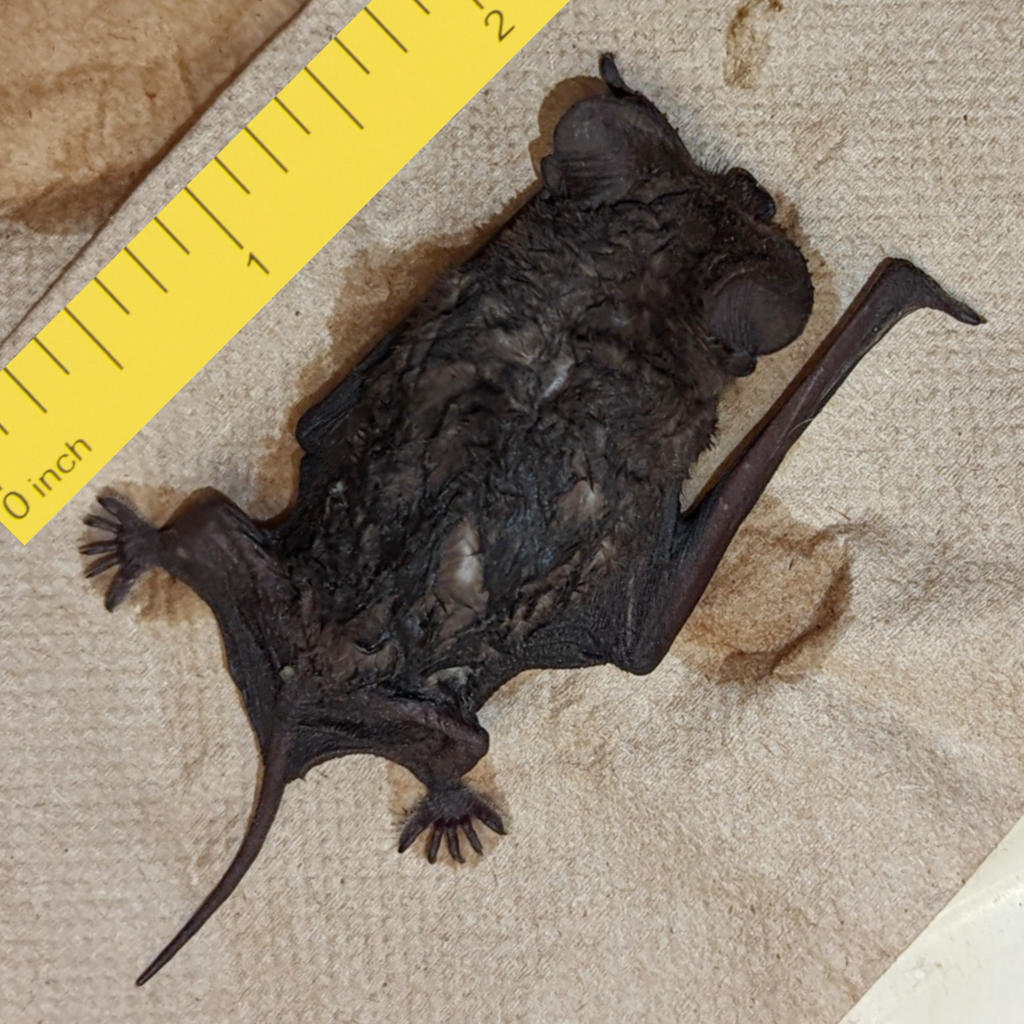As I get older, I'm often reminded that my memory's not what it used to be. Example: One night last week, while my wife and I were watching the news, I asked her what I thought was a reasonable question about a guy who was being interviewed on the street. "Why in the world," I said, pointing, "would someone wear both a belt and suspenders?" It was of course more of an observation than a question, and right away it seemed somehow familiar to me. I spent the rest of the newscast trying to remember where I'd heard that expression before.
Later that night I did some snooping around on YouTube and--sure enough--I found this clip, from Once Upon a Time in the West, which solved my belt-and-suspenders mystery. When I told my wife about it. she made an observation of her own. She said, not for the first time, "I think you watch too many movies."
Guilty as charged, there. I happen to love movies. And over the years I've picked up a lot of sayings that I first heard spoken in big-screen dialogue. Some of them are silly, some are wise, and most of them stay in my head for a long time afterward. Which led of course to this post.
Here's my question to you: How many film quotes do you recognize, from the following three lists?
NOTE: Given my sophisticated viewing preferences, you can expect to see more quotes here from movies like Jaws and Blazing Saddles than from movies like Schindler's List and Anna Karenina. Sorry, but that's just the way it is.
List #1. 10 lines of dialogue that almost everyone knows. (I trust you to supply the movie names. If you've been lost on a jungle island for the past eighty years or so and your rescuers have a computer handy, I have provided video-clip links.)
1. Here's looking at you, kid.
2. I'm gonna make him an offer he can't refuse.
3. May the Force be with you.
4. Frankly, my dear, I don't give a damn.
5. You're gonna need a bigger boat.
6. Toto, I have a feeling we're not in Kansas anymore.
7. If you build it, he will come.
8. Bond. James Bond.
9. I love the smell of napalm in the morning.
10. Go ahead. Make my day.
List #2. 100 quotes you probably/possibly know, if you're a movie lover:
1. You can't fight in here--this is the War Room. -- Dr. Strangelove
2. Show me the money. -- Jerry Maguire
3. I coulda been a contender. -- On the Waterfront
4. Play it, Sam. Play "As Time Goes By." -- Casablanca
5. Surely you're not serious. / I am serious. And don't call me Shirley. -- Airplane!
6. I'm the king of the world! -- Titanic
7. Leave the gun, take the cannoli. -- The Godfather
8. Mama always said life was like a box of chocolates. -- Forrest Gump
9. What we have here . . . is a failure to communicate. -- Cool Hand Luke
10. You can't handle the truth. -- A Few Good Men
11. That plane's dusting crops where there ain't no crops. -- North by Northwest
12. Today I saw a slave become more powerful than the Emporer of Rome. -- Gladiator
13. Throw me the idol, I throw you the whip. -- Raiders of the Lost Ark
14. You talking to me? -- Taxi Driver
15. Love means never having to say you're sorry. -- Love Story
16. Is it safe? -- Marathon Man
17. Put up your arms--and all your flippers. -- Men in Black
18. I'd like to report a truck driver who's been endangering my life. -- Duel
19. I wish we could chat longer, but I'm having an old friend for dinner. -- The Silence of the Lambs
20. Say hello to my leetle friend. -- Scarface
21. Open the pod bay doors, Hal. -- 2001: A Space Odyssey
22. The stuff that dreams are made of. -- The Maltese Falcon
23. Hello, my name is Inigo Montoya. You killed my father. Prepare to die. -- The Princess Bride
24. Travis! Bring your gun! -- Old Yeller
25. Who ya gonna call? -- Ghostbusters
26. Made it, Ma! Top of the world! -- White Heat
27. They call me Mister Tibbs. -- In the Heat of the Night
28. Seven years of college, down the drain. -- Animal House
29. I'm as mad as hell, and I'm not going to take this anymore! -- Network
30. We got trouble, right here in River City. -- The Music Man
31. Last night I dreamt I went to Manderley again. -- Rebecca
32. Who are those guys? -- Butch Cassidy and the Sundance Kid
33. Please welcome the very excellent barbarian . . . Mr. Genghis Khan! -- Bill and Ted's Excellent Adventure
34. I'm walking here! I'm walking here! -- Midnight Cowboy
35. After all . . . tomorrow is another day. -- Gone with the Wind
36. STELLA! -- A Streetcar Named Desire
37. I'll have what she's having. -- When Harry Met Sally
38. He can't go down with three barrels on him. Not with three, he can't. -- Jaws
39. I see dead people. -- The Sixth Sense
40. Plastics. -- The Graduate
41. I'm George, George McFly. I am your density. I mean . . . your destiny. -- Back to the Future
42. Houston, we have a problem. -- Apollo 13
43. I call that bold talk for a one-eyed fat man. -- True Grit
44. You had me at "hello." -- Jerry Maguire
45. I don't understand. All my life I've been waiting for someone, and when I find her . . . she's a fish. -- Splash
46. Shaken, not stirred. -- Goldfinger (and many other Bond movies)
47. There's no crying in baseball. -- A League of Their Own
48. Snake Plissken? I heard you were dead. -- Escape from New York
49. And for a brief moment, Gordo Cooper became the finest pilot anyone had ever seen. -- The Right Stuff
50. It's alive! It's alive! -- Frankenstein
51. Rosebud. -- Citizen Kane
52. Remember me? I came in here yesterday and you wouldn't wait on me. Big mistake. -- Pretty Woman
53. He's fleeing the interview! -- Fargo
54. What in the wide, wide world of sports is goin' on here? -- Blazing Saddles
55. Greed, for lack of a better word, is good. -- Wall Street
56. Mrs. Robinson, you're trying to seduce me. Aren't you? -- The Graduate
57. Of all the gin joints in all the towns in all the world, she walks into mine. -- Casablanca
58. Heeeeere's Johnny! -- The Shining
59. It was beauty killed the beast. -- King Kong
60. Anybody hear that? It's an impact tremor, that's what it is. I'm fairly alarmed here. -- Jurassic Park
61. Every time a bell rings, an angel gets its wings. -- It's a Wonderful Life
62. Tell 'em to go out there with all they've got and win just one for the Gipper. -- Knute Rockne: All-American
63. Put some Windex on it. -- My Big Fat Greek Wedding
64. And that was the end of Grogan--the man who killed my father, raped and murdered my sister, burned my ranch, shot my dog . . . and stole my Bible. -- Romancing the Stone
65. Get your stinking paws off me, you damn dirty ape. -- Planet of the Apes
66. I saw it. It was a run-by fruiting. -- Mrs. Doubtfire
67. Be careful, out there among them English. -- Witness
68. ADRIAN! -- Rocky
69. I'll get you, my pretty, and your little dog too. -- The Wizard of Oz
70. Roads? Where we're going, you don't need roads. -- Back to the Future
71. Fat man, you shoot a great game of pool. -- The Hustler
72. I volunteer as tribute. -- The Hunger Games
73. Louis, I think this is the beginning of a beautiful friendship. -- Casablanca
74. It doesn't feel pity, or remorse, or fear. And it absolutely will not stop, ever, until you are dead. -- The Terminator
75. Have fun storming the castle. -- The Princess Bride
76. Roger O. Thornhill. What does the O stand for? / Nothing. -- North by Northwest
77. Michael, we're bigger than U. S. Steel. -- The Godfather, Part II
78. Give me ten men like Clouseau and I could destroy the world. -- A Shot in the Dark
79. To infinity and beyond! -- Toy Story
80. Docta Jones, Docta Jones! No more parachutes! -- Indiana Jones and the Temple of Doom
81. This was no boat accident. -- Jaws
82. I don't have to show you any steenking badges. -- The Treasure of the Sierra Madre
83. WILSON! -- Cast Away
84. When you said you chased tornadoes, I thought that was just a metaphor. -- Twister
85. A lie keeps growing and growing until it's as clear as the nose on your face. -- Pinocchio
86. I want Ness . . . dead. I want his family . . . dead. I want his house . . . burned to the ground. -- The Untouchables
87. Hasta la vista, baby. -- Terminator 2: Judgment Day
88. What if there is no tomorrow? There wasn't one today. -- Groundhog Day
89. All I wanna do is go the distance. -- Rocky
90. That'll do, pig. That'll do. -- Babe
91. They're heeee-re. -- Poltergeist
92. I killed him for money and a woman--and I didn't get the money and I didn't get the woman. -- Double Indemnity
93. We rob banks. -- Bonnie and Clyde
94. I'll be back. -- The Terminator
95. These aren't the droids you're looking for. -- Star Wars
96. There's only one rule: Once you go in . . . you don't come out. -- Escape from New York
97. Sometimes nothin' can be a mighty cool hand. -- Cool Hand Luke
98. Round up the usual suspects. -- Casablanca
99. As God is my witness, I'll never be hungry again. -- Gone with the Wind
100. Miss Jean Louise, stand up. Your father's passing. -- To Kill a Mockingbird
List #3. 50 quotes rarely recognized, but cool anyway (some of my favorites):
1. Goodnight, you princes of Maine, you knights of New England. -- The Cider House Rules
2. I've got the motive, which is money, and the body, which is dead. -- In the Heat of the Night
3. The greatest trick the devil ever pulled was convincing the world he didn't exist. -- The Usual Suspects
4. We at the FBI do not have a sense of humor that we're aware of. -- Men in Black
5. Any man don't wanna get killed, better clear on out the back. -- Unforgiven
6. That's a negative, Ghostrider, the pattern is full. -- Top Gun
7. All these things I can do, all these powers . . . and I couldn't even save him. -- Superman
8. The next time I see Blue Duck, I'll kill him for you. -- Lonesome Dove
9. A wed wose. How womantic. -- Blazing Saddles
10. You got ten seconds to run like hell. Then dynamite, not faith, will move that mountain into this pass. -- The Professionals
11. In the end you wind up dying all alone on some dusty street. And for what? A tin star? -- High Noon
12. Ain't had no water since yesterday, Lord. Gettin' a little thirsty. Just thought I'd mention it. Amen. -- The Ballad of Cable Hogue
13. How will you die, Joan Wilder? Slow, like a snail? Or fast, like a shooting star? -- Romancing the Stone
14. Oh, my. I hope that wasn't a hostage. -- Die Hard
15. I'll take those Huggies and whatever you got in the register. -- Raising Arizona
16. He just saved your life, and Elizabeth's too. And he saved mine, and Arliss's. We can't just shoot him, like he was nothin'! -- Old Yeller
17. Stay on or get off? STAY ON OR GET OFF? -- Speed
18. I wish they wouldn't land those things here while we're playing golf. -- M*A*S*H
19. O Captain, my Captain. -- Dead Poets Society
20. Love means never having to say you're sorry. / That's the dumbest thing I ever heard. -- What's Up, Doc?
21. Come on, Hobbs, knock the cover off the ball. -- The Natural
22. We find the defendants incredibly guilty. -- The Producers
23. I'm always frank and earnest with women. In New York I'm Frank, in Chicago I'm Ernest -- The Long Kiss Goodnight
24. Moneypenny, what would I do without you? / My problem is, you never do anything with me. -- On Her Majesty's Secret Service
25. I see you've been missing a lot of work. / Well. I wouldn't say I've been missing it. -- Office Space
26. I'm thinking your head would make a real good toilet brush. -- Heaven's Prisoners
27. The horse is too small, the jockey's too big, the trainer's too old, and I'm too dumb to know the difference. -- Seabiscuit
28. I got vision and the rest of the world wears bifocals. -- Butch Cassidy
29. Go do that voodoo that you do so well. -- Blazing Saddles
30. All you have to do is hold the chicken, bring me the toast, and charge me for a chicken salad sandwich. / You want me to hold the chicken? / I want you to hold it between your knees. -- Five Easy Pieces
31. Where is your commanding officer? / Blowed up, SIR! -- Stripes
32. You are in need of a soothsayer. / How do you know? / I'd be a fine soothsayer if I didn't. -- A Funny Thing Happened on the Way to the Forum
33. This lighter has sixty-two different functions. Sixty-three if you wish to light a cigar. -- Our Man Flint
34. Funny thing is, on the outside I was an honest man. I had to come to prison to be a crook. -- The Shawshank Redemption
35. That's a Smith and Wesson--and you've had your six. -- Doctor No
36. Snakes. Why did it have to be snakes? -- Raiders of the Lost Ark
37. That was the end of my religion period. I ain't sung a hymn for 104 years. -- Little Big Man
38. Here are your names: Mr. Brown, Mr. White, Mr. Blond, Mr. Blue, Mr. Orange, and Mr. Pink. -- Reservoir Dogs
39. Don't open my pantry, Father. I found one of them in there and I locked him in. -- Signs
40. He's in a gunfight right now. He'll have to call you back. -- Under Siege
41. You know, the one thing I can't figure out, are these girls real smart or real real lucky? -- Thelma and Louise
42. You can shoot all the blue jays you want, if you can hit 'em . . . -- To Kill a Mockingbird
43. What happened to the old bank?--it was beautiful. / People kept robbing it. / Small price to pay for beauty. -- Butch Cassidy
44. If you build what, who will come? / He didn't say. -- Field of Dreams
45. Ain't gonna be no rematch. Don't want one. -- Rocky
46. He did it! He missed the barn! -- Cat Ballou
47. Do you swear to tell the truth, the whole truth, and nothing but the truth? / So help me, Me. -- Oh, God!
48. I once asked this literary agent, "What kind of writing paid the best?" He said, "Ransom notes." -- Get Shorty
49. You've got me? Who's got you? -- Superman
50. This is Ripley, last survivor of the Nostromo, signing off. -- Alien
And this is me, signing off. If you have a favorite film quote, or even one from TV (I had to draw the line somewhere), please let me know in the comments section.
Next Saturday, I'll be here with something about, believe it or not, mystery writing. Meanwhile, keep watching those movies.


























